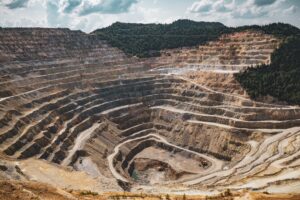
Lithium, a crucial component in batteries that power our modern world, has brought numerous advancements in technology and renewable energy. However, the extraction and production of lithium are not without their environmental challenges. Understanding the environmental hazards associated with lithium mining and implementing strategies to reduce the impact is essential for sustainable resource management.
Lithium mining, whether from brine deposits or hard rock minerals, can have significant environmental consequences. Here are some key hazards:
Water Scarcity and Contamination: Lithium extraction from brine deposits requires vast amounts of water. This can strain local water sources, leading to water scarcity and negatively impacting surrounding ecosystems. Moreover, if not managed properly, the chemicals and byproducts used in the extraction process can contaminate water supplies, affecting aquatic life and posing risks to human health.
Deforestation and Habitat Loss: The establishment of lithium mining operations often requires clearing large areas of land, resulting in deforestation and habitat destruction. These actions can disrupt fragile ecosystems, displacing wildlife and contributing to biodiversity loss.
Soil Degradation: The extraction process can lead to soil erosion and degradation, affecting the fertility and productivity of the land. Soil disturbance can also release previously sequestered carbon, contributing to climate change.
Air Pollution: Dust and particulate matter generated during mining operations can cause air pollution, affecting local air quality and potentially causing respiratory problems for nearby communities. Additionally, the combustion of fossil fuels for transportation and energy-intensive processes in lithium production can contribute to greenhouse gas emissions.
To mitigate the environmental impact of lithium mining, several strategies can be implemented:
Water Conservation and Recycling: Implementing water conservation measures and promoting the recycling of process water can help reduce the strain on local water sources. Developing closed-loop systems that minimize water usage and maximize recycling can significantly reduce water-related hazards.
Adoption of Sustainable Mining Practices: Mining companies can prioritize sustainable practices, including responsible land reclamation, minimizing deforestation, and preserving or restoring natural habitats. Implementing comprehensive environmental impact assessments and adhering to stringent regulations can help mitigate the negative effects of mining.
Use of Cleaner Energy Sources: Transitioning to renewable energy sources for powering mining operations can reduce greenhouse gas emissions and decrease reliance on fossil fuels. Utilizing solar or wind energy, for instance, can help mitigate the carbon footprint associated with lithium production.
Improved Waste Management and Recycling: Proper management of waste generated during lithium extraction is vital. Developing effective waste disposal and treatment methods, as well as promoting the recycling of lithium batteries, can minimize the environmental impact of mining and production.
Transparency and Stakeholder Engagement: Ensuring transparency in the lithium mining industry and involving local communities, indigenous groups, and other stakeholders in decision-making processes can help address concerns, reduce conflicts, and foster sustainable practices. Community engagement and consultation can lead to the implementation of better environmental safeguards.


